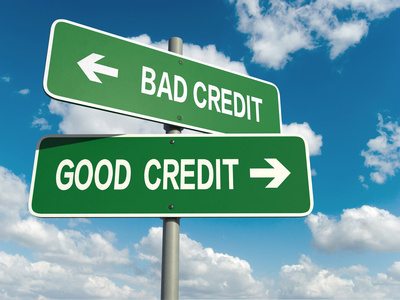When you apply for new credit, your credit scores will likely be the primary factor that determines if you will be approved. From a lender’s perspective, your credit scores are as important as your having stable employment and a verifiable income. Without solid credit scores that meet a lender’s minimum criteria you are virtually guaranteed to have your application for credit denied.
Credit Score Ranges
There are many varieties of credit scores; no one has just one single score that determines his credit worthiness. However, while there are many different credit scoring models in existence, the most common credit scores used in almost every single loan application are either the FICO or VantageScore brand.
You have dozens of different FICO scores and 9 different VantageScore scores. Let’s say that you had your Experian score pulled by a credit card issuer and an auto dealership on the same day. Even though both businesses pulled your score from the same credit bureau, they will still almost certainly be looking at 2 different numbers. However, even though credit scores may vary from lender to lender (depending on the specific scoring model in use), all generally used credit scores fall within the same range or scale, which is 300 – 850.
Ranking the Ranges
There is no specific chart that you can reference to show you exactly what a lender will view as a “good,” “bad,” or “excellent” credit score. Lenders determine for themselves what they deem as acceptable and unacceptable. Credit scores, after all, are simply a tool to help lenders make more consistent, fact-based decisions about whether or not they wish to do business with you. How different lenders choose to use that tool is completely up to them.
Although there are no set-in-stone credit score ranges, the following is a pretty good guide as to some general credit score ranges and how lenders may view them:
- Poor Credit: Anything below 650
- Fair Credit: 650 – 699
- Good Credit: 700 – 759
- Excellent Credit: 760 and above
How Your Credit Score Range Impacts Your Life
Let’s say that these credit score ranges are the ones used by ABC Bank, a credit card issuer. If ABC Bank decides to approve consumers with fair credit at an interest rate of 20.99% and consumers with excellent credit at a rate of 11.99%, then you could realistically pay an extra $76 per month in interest fees on $10,000 worth of outstanding credit card debt. That adds up to approximately $912 in additional interest fees per year versus what you would be expected to pay if you had excellent credit scores. You get no benefit by paying that extra interest.
Credit score ranges not only determine the interest rate which a lender will offer but they also determine whether or not you will qualify for an account in the first place. If your credit scores fall below the “Fair Credit” range in the example above then you would not be able to qualify for a credit card account with ABC Bank, at all. Plus in addition to the higher interest rates, the issuing bank could also charge an annual fee in an effort to offset the added risk the bank is taking on due to your lower credit scores.
Even though the example above is hypothetical, it still gives a very clear picture of how important your credit scores are and how costly credit problems can be. There is no question that you should make it a priority to earn and maintain an excellent credit score. It’s one of the best financial moves you can make.





You’re not helping, John.
A few states prohibit insurers from using consumer credit information – California, Massachusetts and Hawaii for auto insurance and Maryland and Hawaii for homeowners insurance.